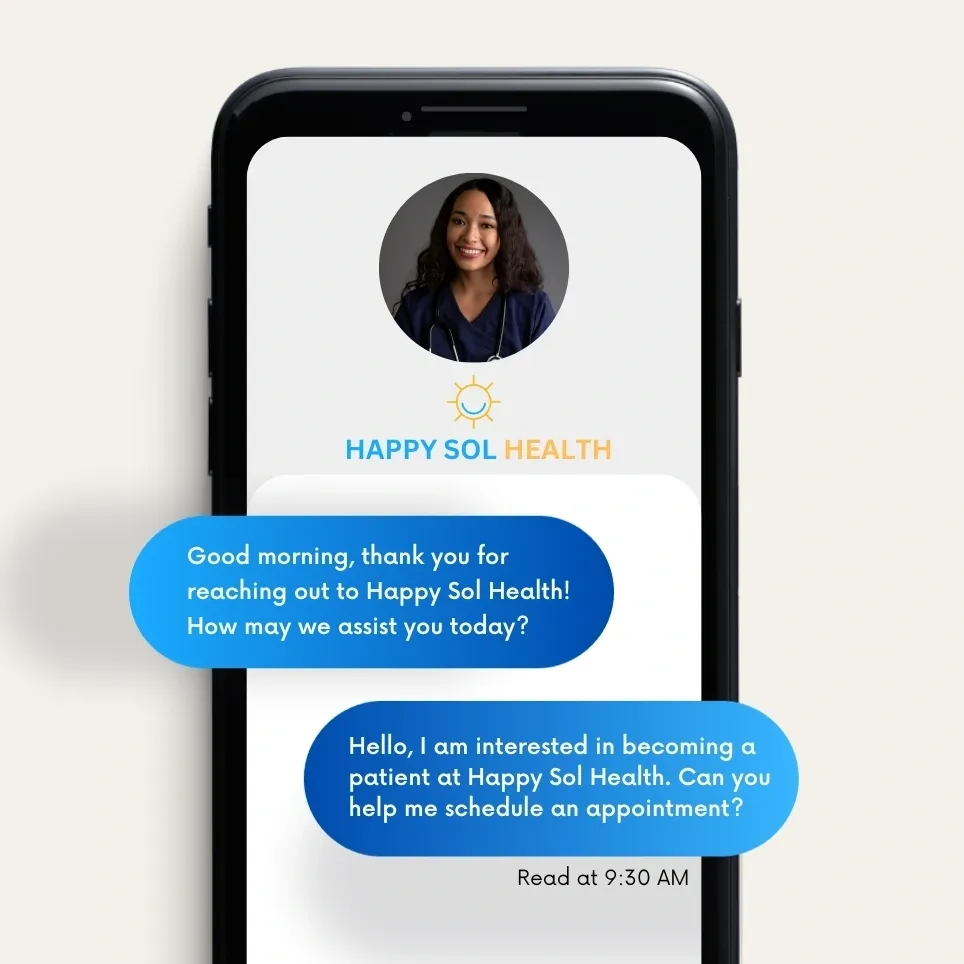What is Acute Stress Disorder (ASD)?
Acute Stress Disorder (ASD) is a psychological condition that can occur in response to a traumatic event. It is characterized by a set of symptoms that develop within one month of exposure to a traumatic event and can last for a minimum of three days and a maximum of four weeks. ASD is considered a precursor to post-traumatic stress disorder (PTSD), as some individuals who experience ASD may go on to develop PTSD if symptoms persist beyond the initial month.

Start your Mental Health Journey today!
- Medication Management
- In-person and Virtual appointments are available
- Great support staff that is here to help
What are acute stress disorder (ASD) symptoms?
- Intrusion Symptoms
- Negative Mood and Cognition
- Avoidance Symptoms
- Arousal and Reactivity
- Intrusive Thoughts: Distressing, unwanted memories, or images related to the traumatic event may repeatedly intrude into consciousness.
- Nightmares: Recurrent and distressing dreams about the traumatic event.
- Dissociation: Feeling detached from oneself or having a sense of unreality.
- Negative Emotions: Persistent feelings of fear, horror, anger, guilt, or shame.
- Inability to Remember: Difficulty remembering important aspects of the traumatic event.
- Avoidance of Reminders: Efforts to avoid distressing memories, thoughts, or feelings associated with the traumatic event.
- Avoidance of External Cues: Steering clear of people, places, conversations, activities, or objects that serve as reminders of the trauma.
- Irritability: An increase in irritability or angry outbursts.
- Difficulty Concentrating: Trouble focusing or paying attention.
- Hypervigilance: Heightened sensitivity to potential threats.
- Exaggerated Startle Response: Easily startled by noises or unexpected stimuli.
To be diagnosed with ASD, an individual must experience a minimum of nine symptoms from any of the categories mentioned above. It’s important to note that ASD is a time-limited condition, and if these symptoms persist beyond four weeks, a diagnosis of post-traumatic stress disorder (PTSD) may be considered.
It’s also crucial to recognize that different individuals may respond to trauma in unique ways, and not everyone who experiences a traumatic event will develop ASD. If you or someone you know is experiencing symptoms of ASD, it is recommended to seek professional help promptly. Mental health professionals, such as psychologists or psychiatrists, can provide an accurate diagnosis and recommend appropriate treatment options to support recovery.
If you are experiencing Acute Stress Disorder (ASD), you may find yourself overwhelmed by intrusive thoughts, nightmares, and a heightened sense of alertness following a traumatic event. These symptoms can be distressing and may interfere with your daily life.
How is acute stress disorder (ASD) treated?
Treatment options recommended by specialist
Acute Stress Disorder (ASD), the primary treatment approach involves a combination of therapeutic interventions designed to address the specific symptoms associated with the aftermath of a traumatic event.
Here’s how ASD is typically treated:
Cognitive-Behavioral Therapy (CBT)/Trauma-Focused CBT (TF-CBT): This form of therapy is particularly effective for ASD. It helps individuals process the traumatic event, manage intrusive thoughts, and develop coping strategies. CBT often includes exposure techniques and cognitive restructuring.

- Immersive Desensitization: Gradual exposure to thoughts, memories, and situations related to the trauma assists in reducing the emotional impact and distress associated with those memories
- Supportive Counseling: Offering a safe and supportive space, counseling helps individuals explore and express their thoughts and feelings, aiding in the recovery process.
- Mindfulness-Based Approaches: Techniques such as mindfulness meditation and relaxation exercises can assist individuals in managing stress and staying present in the moment.
- Social Support: Encouraging individuals to connect with friends, family, or support groups provides a valuable network for understanding and coping with trauma.
- Psychoeducation: Providing information about ASD, its symptoms, and the recovery process helps individuals understand their experiences and promotes normalization of their reactions.
- Medication: In some cases, healthcare professionals may prescribe antidepressant medications, such as selective serotonin reuptake inhibitors (SSRIs), to help manage symptoms of anxiety and depression associated with ASD.
Commonly prescribed medications may include:
Commonly prescribed medications may include:
Selective Serotonin Reuptake Inhibitors (SSRIs):
- Sertraline (Zoloft)
- Paroxetine (Paxil)
- Fluoxetine (Prozac)
Serotonin-Norepinephrine Reuptake Inhibitors (SNRIs)
- Venlafaxine (Effexor XR)
- Duloxetine (Cymbalta)
Benzodiazepines (Short-term use for anxiety):
- Diazepam (Valium)
- Lorazepam (Ativan)
- Clonazepam (Klonopin)
Prazosin
- Prazosin is an alpha-blocker that may be used to help alleviate nightmares and improve sleep.
It’s important to note that medication alone may not be sufficient, and psychotherapy, particularly trauma-focused therapies like cognitive-behavioral therapy (CBT), is often recommended as a primary treatment for acute stress disorder. Consultation with a mental health professional is essential to determine the most appropriate treatment plan for an individual.

Start your Journey today!
Discover a Better You with Happy Sol Health
Our team of experts is dedicated to helping you achieve your health goals. Browse our services and start your journey to better health today.
